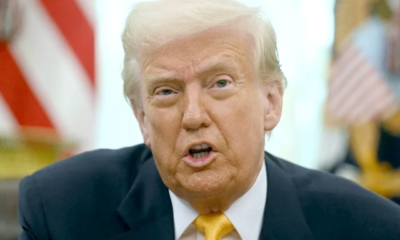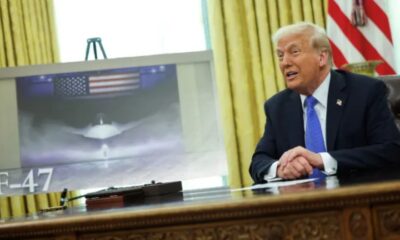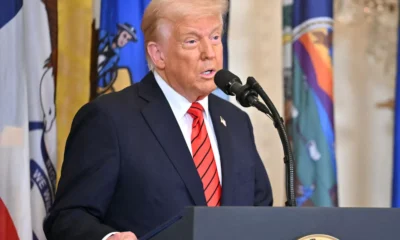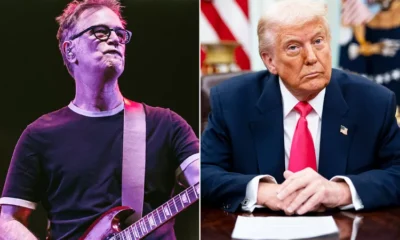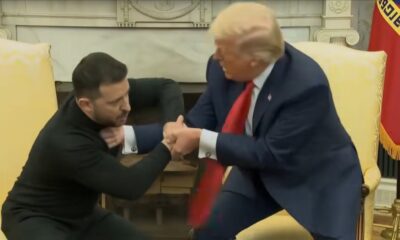CELEBRITY
Trump Responds to Reports of Elon Musk Being Briefed on U.S. Military Plans at the Pentagon
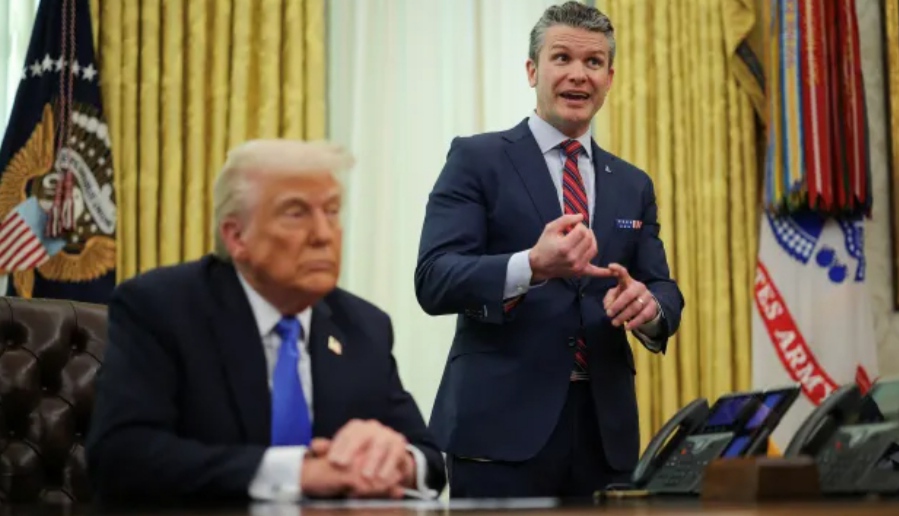
**Trump Responds to Reports of Elon Musk Being Briefed on U.S. Military Plans at the Pentagon**
In recent developments, former President Donald Trump has publicly pushed back on reports suggesting that Elon Musk, the CEO of Tesla and SpaceX, was briefed on U.S. military plans regarding a potential conflict with China during a visit to the Pentagon. These claims, which have stirred considerable media attention, were met with a strong denial from Trump, who expressed his disbelief at the notion of revealing such sensitive information to private individuals.
The controversy began when reports emerged that Musk, known for his role in both technological innovation and his outspoken nature on social media, was allegedly granted access to classified briefings on military strategies involving China. Given Musk’s significant influence as the head of major companies with government contracts, the idea of him being involved in national security discussions raised eyebrows.
However, in response to these reports, Trump made his stance clear, stating that he would not want such critical information—especially regarding potential war plans—shared with anyone outside the highest levels of government and military leadership. “I wouldn’t want to show such plans to anybody,” Trump remarked, adding further skepticism to the allegations that Musk could have been given any substantial military briefings. This statement highlights the gravity with which Trump views sensitive national security matters, particularly those related to international tensions like those between the U.S. and China.
The debate surrounding Musk’s access to military briefings is indicative of broader concerns over the increasing intersection of private-sector influence and national security. Musk, whose companies are deeply integrated with government programs, particularly in space exploration and defense contracts, has often found himself at the nexus of these conversations. As the owner of companies like SpaceX, which has close ties to the Pentagon, his influence on matters of defense and space policy is undeniable. However, many experts argue that private-sector leaders, regardless of their technological prowess, should not have direct access to strategic military information.
Critics of the situation have raised concerns about the potential for conflicts of interest, given Musk’s role in both the private and public sectors. On the other hand, Musk’s supporters point to his innovative contributions, including advancements in space travel and satellite technology, as justification for his involvement in national security discussions. Despite these differing perspectives, the core issue remains whether private individuals should be privy to highly classified military plans, regardless of their standing in the business world.
At the heart of Trump’s remarks is an emphasis on the confidentiality and security of military operations, especially in an era where information is increasingly at risk of being leaked or mishandled. While the former president’s statements were clear in rejecting the idea of sharing sensitive military details with Musk or anyone else outside official channels, the incident has sparked ongoing debates about the relationship between the U.S. government, its military, and powerful business figures.
In conclusion, the situation involving Elon Musk’s alleged briefings at the Pentagon has raised important questions about transparency, trust, and the proper handling of classified information. While Trump’s strong response makes it clear that he views such disclosures as inappropriate, the incident underscores the growing intersection of the public and private sectors, especially in areas as sensitive as national defense. The debate is likely to continue as the role of private corporations in national security matters evolves in the coming years.
